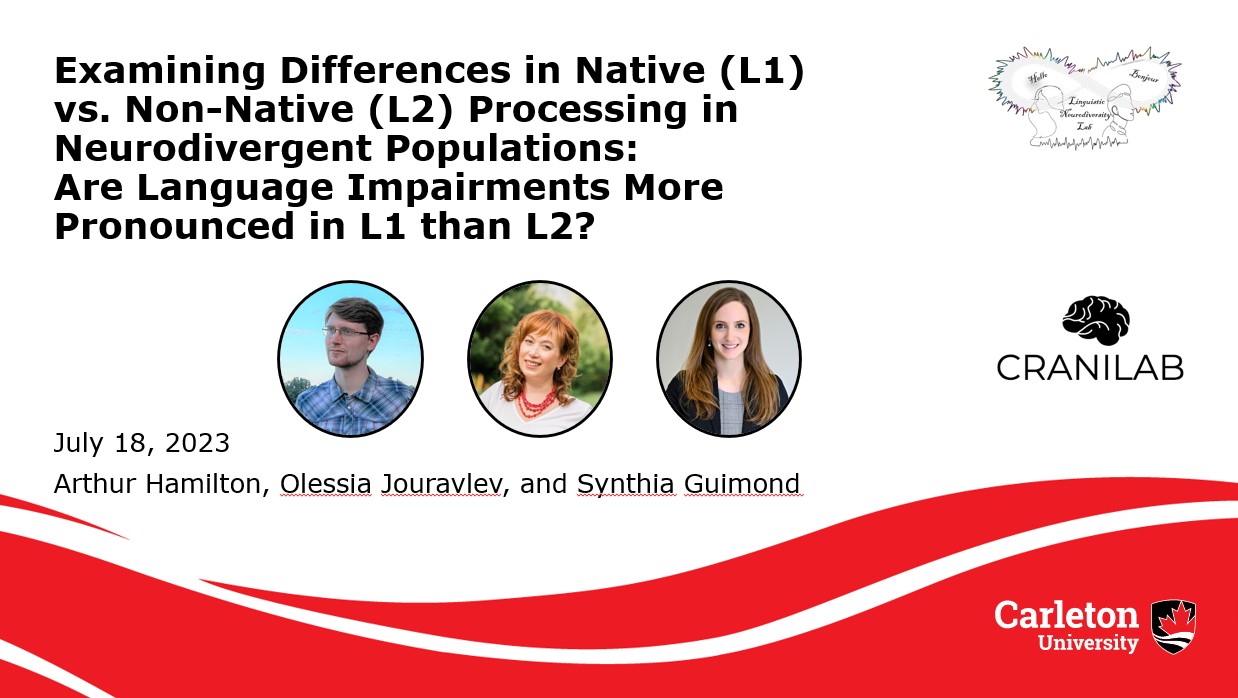
Arthur Hamilton delivered a talk on the findings of his ongoing doctoral research on neurodivergence and bilingualism at the annual meeting of the Canadian Society for Brain, Behaviour and Cognitive Science. He is conducting this research together with his supervisor Dr. Olessia Jouravlev (PI of the L-NEURO Lab at Carleton University) and co-supervisor Dr. Synthia Guimond (PI of CRANILAB at The Institute for Mental Health Research at The Royal). The conference was held at the University of Guelph in Guelph, Ontario, Canada from July 17–19, 2023.
Bilinguals often receive clinical care in their second language (L2), but little research has compared how neurodivergent traits manifest in bilinguals’ L2 vs. their first language (L1). A small literature indicates that bilinguals with schizophrenia (SZ) show more symptoms in L1 than L2. Given the genetic and phenotypic similarities between SZ and autism spectrum disorder (ASD), bilinguals with ASD may show analogous L1/L2 differences. However, previous research has not explored whether L1/L2 differences extend to the cognitive deficits associated with SZ and ASD.
The talk explored the results of an online pilot study conducted on bilinguals from the general population, aiming to determine the utility of a similar study in people with SZ and/or ASD. This study assessed the relationship between 1) L1/L2 differences in linguistic cognition and 2) sub-clinical schizotypal and autistic traits. Participants completed tasks measuring performance in four domains of linguistic cognition, each in English and French, as well as three non-linguistic control tasks. Participants also completed questionnaires on sub-clinical schizotypal and autistic symptoms and their demographic and linguistic background. Findings were presented on the relationship between symptom levels and L1/L2 differences in linguistic task scores.